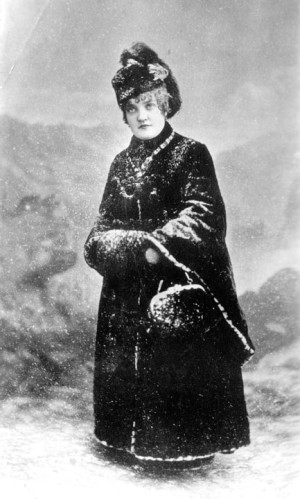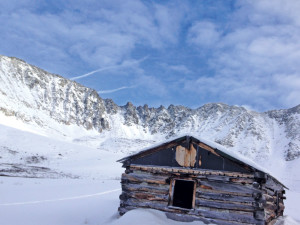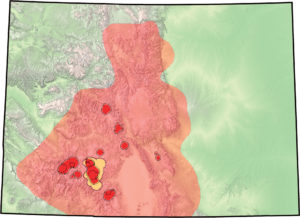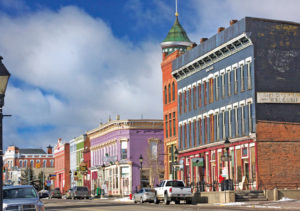By George Sibley
I got talked into revisiting my checkered past as an instructor at Western Colorado State University this fall; the Environment and Sustainability program needed a class covered, and asked if I would conduct a seminar on Western water. So I cobbled up a seminar titled “The Colorado River in the Anthropocene.”
My modest strategy was partly to try to reshape the conventional perspective today concerning the Colorado River, as the most troubled, most endangered, most devastated and trashed, etc., etc. river in the nation, or maybe the world, possibly the universe. I wanted to do this not by denying any of the obvious problems along the river, but by putting those problems into the context of a larger effort that we humans are all engaged in, now of necessity: altering the basic ecological systems of the planet to meet our needs as a too-successful (swarming) species reluctant to control our own expansive and increasingly expensive growth. This is truly a “do or die” situation: either we keep manipulating the planet and its resources to meet our needs, or we experience the die-off that has come eventually to every other swarming species. Welcome to the Anthropocene.
The Colorado River is a good example to use in trying to illustrate that larger picture, because nowhere else on the planet have we more dramatically, and mythically, applied technology to transforming nature. In a single century we’ve converted the river and its rugged geography, considered by early Euro-American visitors to be largely uninhabitable, into a developed region providing for some 35 million inhabitants mostly congregated in huge desert metropolises (outside the natural basin), with five million acres of irrigated former desert land that provide a significant portion of the nation’s meat and fresh produce. The river also runs one of the world’s larger networks of clean and renewable hydroelectric power; and despite all that concentrated use, it still provides world-class water-based recreational adventures.
One way of looking at all this – my way, actually – is to see a huge human achievement that is still a work in progress: a massive reorganization and reconstruction of a somewhat chaotic and inhospitable natural environment to make it more predictable, productive and habitable. The engineers knew from the start that solving the problems associated with a snowmelt river that squandered most of its annual flow in a two-month flood would involve tradeoffs for other problems, like evaporation from storage reservoirs, increasing salinity with increased use, etc. Being optimists by nature, the engineers did not always anticipate the full magnitude of those trade-off problems; and they also encountered problems they did not anticipate, like the rapid expansion of huge metropolitan areas onto agricultural lands, and the decline of fish species that had adapted to the flood-to-trickle natural river.
So, yes, there are still problems all along the Colorado River, but people are working on those problems, and many of them still remember – as I do – grandparents talking about the old erratic and uncontained wild river, and how hard it was to live with. It is easier to deal with problems when they are viewed within the context of a larger work in progress and its achievements in place.
What I realized, however, in my return to the classroom, is that most of the students and a lot of the faculty grew up, perception-wise, on a different planet than I did. This is most easily described in terms of the word “environment”: I can say that I graduated from college in 1964 without any recall of ever having heard that word used in the classroom, let alone being the foundation of a major academic program. But for most students and the younger faculty today, the E-word has been ubiquitous in formal education since elementary school.
[InContentAdTwo]
In the overall, this is a good change. During my two decades at Western, I helped bring the Environment and Sustainability program into being; it is now on its way to being Western’s flagship program and has been recognized as one of the best environmental programs in the nation by those who evaluate such things.
Where “environmental awareness” intersects with a reality like the Colorado River, however, I’ve become aware of a disconnect between “their river” and mine. To put it in the most straightforward and oversimplified way, I grew up at the tag end of a culture still trying to tame the chaotic and random aspects of an indifferent natural environment and put its resources to work for us. But most of today’s students grew up surrounded by an often indifferent urban-industrial cultural environment that seems increasingly chaotic and random; they live for opportunities to run rtom their environmental gauntlet of traffic jams and other congestions to go spend time in what’s left of the natural environment.
I also think they tend to take a little too much for granted the daily benefits of what I see, when I look at the river, as the great but incomplete human achievement – the easy faucets, handles and switches that bring our controlled rivers into our very homes. Their evolving environmental awareness attunes them consciously to the problems of the rivers and streams they go to visit, without necessarily acknowledging their personal complicity in those problems due to the well-watered lives they unconsciously take for granted.
Should I care, so long as they perceive the remaining problems to be resolved in completing the reconstruction of the Colorado River for the Anthropocene Epoch and are willing to work on those problems? Yes and no. On the one hand, all help is help. But on the other hand, their willingness to work on the problems of the river is mostly oriented toward putting the river back the way it was before we came along. I want to complete, with sensitivity and care, a job that was begun with some naivete and hamhanded carelessness; they want to undo that naïve and careless work, which is fine – but they would then like to go on to undo all of that work. Their question from the heart in our seminar was whether it were possible for the Colorado River to be restored to its natural state.
May as well wonder if we can all go back in time, to the time when humans were a small, scattered and vulnerable population with nothing much going for us but a big brain and thumbs opposing our fingers. I do believe that some of the students I’ve encountered at Western would gladly go back to that – and I say that with admiration: some of them carry genes that will save us if, when, that time ever comes around again.
The tragedy here – and I don’t think that term is too strong – is our failure to develop a civilization truly deserving of the transforming of a magnificent but chaotic river to its service. A society we can love as much as we love nature (on a sunny day). I don’t know exactly what dreams inspired the engineers who reconstructed the river, but I don’t really think contemporary Los Angeles, Las Vegas or Denver are exactly what they had in mind. They built huge and sophisticated irrigation delivery systems to farms still basically practicing Stone Age irrigation. Those turbines “humming the tunes of endless wealth” (bureau poetry) power bad television and electric toothbrushes. The Colorado River deserved better; to control a wild, chaotic, violent river just to enable a wild, chaotic, violent consumptive culture is not much of a gain.
I finished the course not sure I had made my point, but I still feel good about the students and the things going on around the Colorado River that we explored. Today, up here in the headwaters of the river, there are dozens of “watershed groups” – mostly young people like my students – working on undoing the careless mistakes of the past: cleaning up and closing off the leakage from abandoned mines, and doing riparian restorations where cattle have broken down meanders and riffle-pool sequences. They are also doing the river monitoring that is the key to more intelligent future water management. And they are finding money to support this work, more bricks in the eco-economy.
Elsewhere in the river region, the great chaotic cities that feed off the river are also trying to get themselves better organized, water-wise. In addition to a constant conservation awareness, they are implementing serious upfront demand-reduction programs to avoid letting bad water habits form in the first place. Instead of looking for new undeveloped water supplies outside their own basins, the cities are reaching out to the farmers who still control four-fifths of the basins water, seeking ways to free up agricultural water through paying for more efficient irrigation systems.
So are we finally beginning to civilize ourselves as well as the natural environment – en route to the engineer’s dreams, and Stegner’s “society to match the scenery”? Or are we just trying to make the best of a bad thing? There’s a difference there. But either way – what choice do we have, here in the Anthropocene? Push on, excelsior.
George Sibley occasionally teaches, usually learns and always tries to write in Gunnison.




